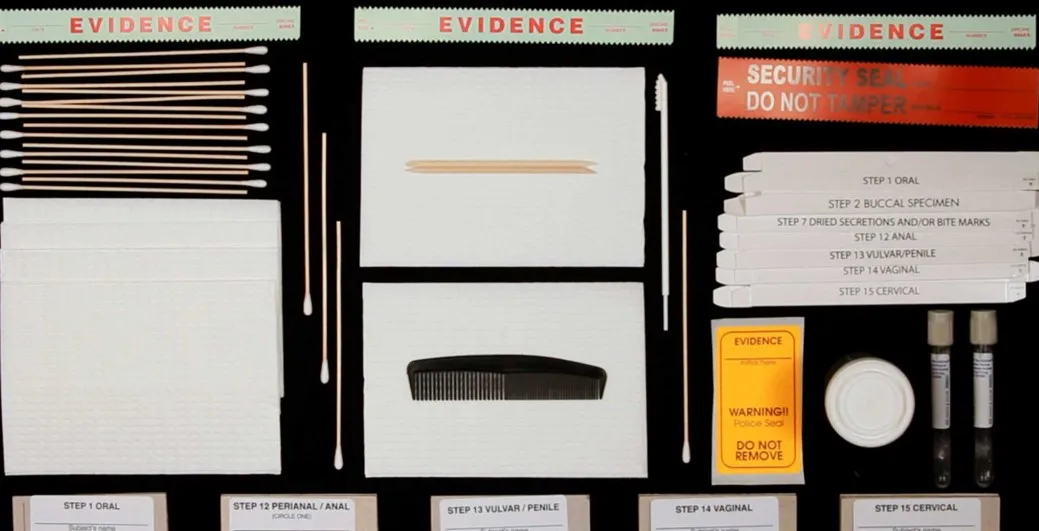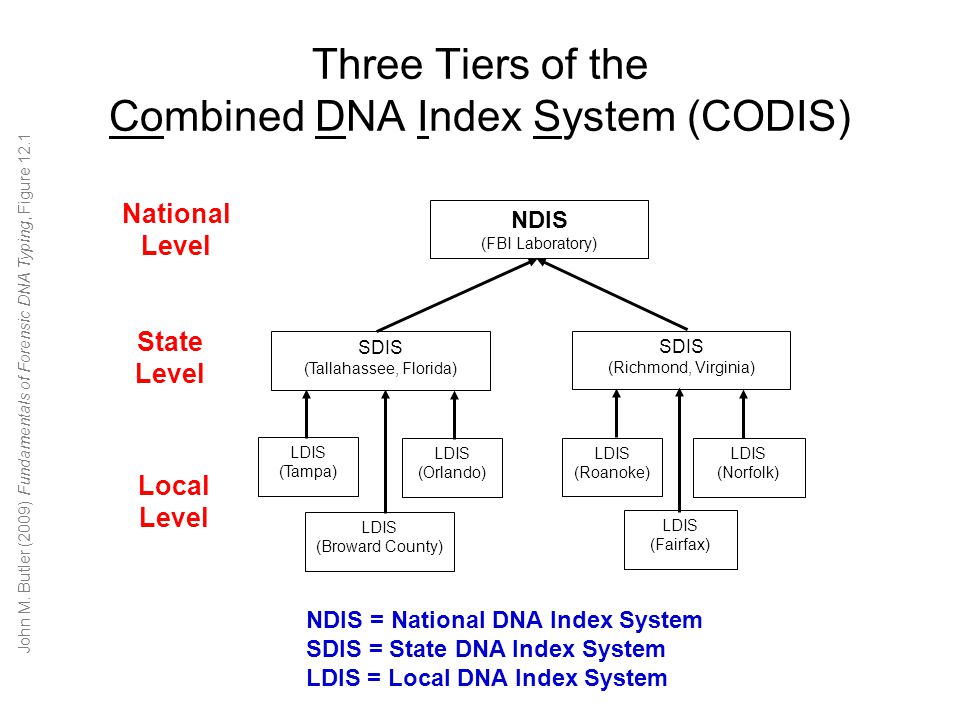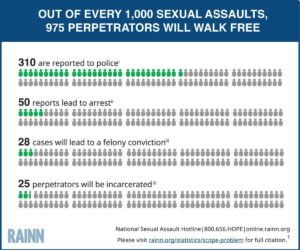A woman in San Francisco, California was arrested and charged with a felony after her DNA that was collected from a sexual assault exam five years prior connected her to a burglary. How is it ethically sound to use the DNA from a rape exam to prosecute the victim for a crime after the victim trusted a system that vowed protection? 1 When a victim reports that they have been assaulted, a sexual assault exam may be conducted to collect evidence and DNA from the victim’s body. The collected DNA is processed through CODIS (Combined DNA Index System) to connect the unknown DNA to someone that already has their information in the CODIS system and thus find the assailant. The CODIS database stores genetic information from anyone that has ever been convicted of a crime or has worked for the government and has acknowledged that their information would be entered into the database for government use. However, the case in San Francisco brought to light that there are currently no laws protecting victims of sexual assault. When a rape kit is processed, a victim’s DNA is also collected and processed due to the nature of the sample. Currently there are no ethical standards for the use of and storage of a rape victim’s DNA during this process. Once entered into CODIS, a victim’s DNA is in-turn a part of a system that can then be searched tying them to a crime if a match is made. Although, entering a victim’s DNA into the CODIS database would expand the system and potentially close cases, it is ethically wrong to use the DNA of the victim from a sexual assault exam to tie them to a crime. This activity may result in reduced reporting of sexual assaults because victims will be fearful that the DNA collected from the sexual assault exam could lead to them serving a prison sentence.
The case in San Fransisco began in 2016 when a woman referred to as Jane Doe, reported that she was in a domestically violent situation with her husband and requested that a sexual assault exam be preformed after the domestic situation became sexual. The sexual assault exam was conducted, but never tested. Instead five years after the exam was conducted, law enforcement used the victims DNA collected from the rape exam to prosecute her for an unrelated property crime. The victim thought that her DNA collected from the rape exam was to be used to separate her DNA collected from the exam from the assailant. The victim reported that it was like being violated again, and that she did not know that the government could take the victims DNA from a rape exam to process the victim for another unrelated criminal case. After the authorities filed the unrelated property crime against Jane Doe, Jane Doe filed a law suit against the city of San Fransisco claiming that the charges re-victimized her. The city of San Fransisco dropped the charges against Jane Doe for the felony property crime once Jane Doe filed the law suit against the city2. The dropping of the criminal charges before going to trial still begs the question on whether it is ethically right to use victims of sexual assault DNA collected from the sexual assault exam to prosecute them on unrelated criminal charges. The case of Jane Doe in San Fransisco is the only known case that used the DNA of a rape victim to convict the victim on an unrelated crime, but who is to say that this has not happened before.

A sexual assault exam is a four-to-six-hour exam that collects and stores DNA in a sexual assault evidence kit. During the examination the victim’s body is treated as a crime scene. The examination consists of the collection of biological evidence: saliva, blood, semen, urine, skin cells and hair. This is biological material is collected through an invasive swab of the skin, anus, genitalia, and mouth of the victim and by taking scrapings from under the victim’s fingernails and combing through the victim’s hair and pubic hair. After, biological evidence is collected by the forensic medical examiner the victim’s body is photographed from head to toe for any signs of bruising or injuries. The collected evidence is meticulously packaged and labeled to prevent cross contamination. The victim has a choice to report the crime to authorities, if the victim chooses not to report the crime to the police, then the sexual assault kit will remain sealed and protected in the hospital’s custody. If the victim chooses to report the sexual assault, the sexual assault kit is then transported to the local crime laboratory to be tested.3

The purpose for a victim to undergo a sexual assault exam is to capture a sexual assailant and prevent the attacker from commuting more crimes. A sexual assault exam and material collection must be done by medical professional in a hospital setting and HIPPA (Health Insurance Portability and Accountability Act) rights should be enforced when handling, processing, and storing sexual assault kits. “HIPPA is a federal law that required the creation of national standards to protect sensitive patient health information from being disclosed without the patient’s consent or knowledge.”4 If considered a medical exam, the obtained photographs and victim’s DNA should only be accessed for the intended purpose that the information was collected for. The results of a victim’s exam extending beyond the assailants collected DNA, should be protected by HIPAA. If the victim’s DNA is entered into the CODIS system after the rape kit is processed, the victims DNA will always be linked to a database that original intended use was to internalize DNA from individuals that commit crimes, and not the victims of a crime.
Testing victims DNA from their sexual assault kits is a violation of the Fourth Amendment which covers several assets to the right to privacy:
“The rights of the people to be secure in their persons, house papers, and effects, against unreasonable searched and seizures, shall not be violated, and no Warrants shall issue, but upon probable cause, supported by Oath or affirmation, and particularly describing the place to be searched, and the persons or things to be seized.”5
The Fourth Amendment in the Constitution of the United States outlines that a person should not have to live in fear that the government can freely access the citizen’s information whenever the government wants. However, through loopholes in the Fourth Amendment, with wording like “probable cause” government laboratories can gain access to the victim’s DNA from their rape kit without consent. The Fourth Amendment is being interpreted in a way that is harming victims of sexual assault. Therefore the Fourth Amendment should state exactly what the amendment is guarantee to protect, and the government should not be able to find wording technicalities that enable the Amendment to work in the favor of the government and not the intended purpose of protecting individuals God given rights. .
Furthermore, the Fourteen Amendment ensures that all citizens of the United States are equally protected under all laws. The Constitution states in Section 1:
“No state Shall make or enforce any law which shall abridge the privileges or immunities of citizens of the United States; nor shall any State deprive any person of life, liberty, or property, without die process of law; nor deny to any person within its jurisdiction the equal protection of the laws.”6
If the government mandates that all victims that have a sexual assault exam performed enter their DNA into the CODIS database, it would infringe upon the victims rights. If the government wants to make it mandatory that all victims of sexual assault enter their DNA into the database then it would open the door to anyone that wants to report a crime enter their genetic information into the CODIs database as well. The legal system does not have the right to mandate DNA from anyone that wants to report a crime. An example would be a person reporting a car accident, but before the report can be made law enforcement has to take a boucle swap and enter their information into CODIS to ensure that they have not participated in a crime that they may have left their DNA behind at. Requesting that a victim of sexual assault DNA be easily accessible for testing not related to the sexual assault opens doors for violating the rights that our founding fathers agreed were natural born rights.7

The United States alone has reported many problems with victims willing to report their sexual assault to authorities due to fear of exploitation. According to statistics collected from RAINN (Rape, Abuse & Incest National Network) from 2005 to 2010 there were about 20% of rape exams not reported to the police because the victims were fearful that the attacker would come back and retaliate, and another 13% of the exams that were not reported were fearful that the police would not do anything to help their situation.8 The government is already struggling with the amount of victim’s that want to report their sexual assault to the police, but instead of trying to make it easier for victims to come forward, the government chooses to make it more challenging for the victim to report. Since there are no strict regulations on the purpose for testing DNA from a rape exam, the victims DNA could lead to their arrest years after the exam was performed. The victim would have to live in constant fear that their DNA is permanently in the CODIS system for an incident that was done to them unwillingly.
Allowing government laboratories to use a victim of sexual assault’s DNA to tie the victim to crimes that they have committed after the sexual assault exam is conducted is morally wrong. A sexual assault exam is a tedious exam that walks the victim through every detail of their attack for hours, and after the exam is processed the victim expects that their DNA evidence would be handled appropriately. However, if the government decided to enter the victim’s DNA into the CODIS database then the government is betraying the victims trust in the system to protect them. Being that the sexual assault exam must be conducted by a medical profession the evidence that was collected during the exam must be treated according to HIPPA guidelines and standards. If the government were to go through with adding all victims of sexual assault DNA into the database then it would be a violation of the Fourth and Fourteenth Amendments granting all citizens the right to privacy and the right to be equally protected under the law. Law enforcement agencies struggle getting victims in to report their sexual assaults, but by implementing the idea that all victims DNA should be entered into CODIS will drastically decrease the amount of victims that already come forward to report their sexual assault.
- “Woman Sues San Francisco after DNA Retained in Sexual Assault Case Used to Arrest Her on Unrelated Charge,” September 13, 2022. https://www.cbsnews.com/news/rape-kit-dna-san-francisco-woman-arrest-lawsuit/. ↵
- Edwards, Jonathan. “SFPD Used a Woman’s Rape Kit DNA to Arrest Her. Now She’s Suing.” Washington Post, September 14, 2022. https://www.washingtonpost.com/nation/2022/09/13/san-francisco-rape-dna-lawsuit/. ↵
- Accessed March 11, 2023. https://www.endthebacklog.org/what-is-the-backlog/what-is-a-rape-kit-and-rape-kit-exam/. ↵
- “Health Insurance Portability and Accountability Act of 1996 (HIPPA)CCDC,” June 28, 2022. https://www.cdc.gov/phlp/publications/topic/hippa.html. ↵
- “U.S. Constitution – Fourth Amendment | Resources – Congress.” Accessed March 12, 2023. https://constitution.congress.gov/constitution/amendment-4/. ↵
- “Fourteenth Amendment | Browse | Constitution Annotated | Congress.gov …” Accessed March 13, 2023. https://constitution.congress.gov/browse/amendment-14/. ↵
- “Blume Library Proxy Server Login.” Accessed March 12, 2023. https://login.blume.stmarytx.edu/login?qurl=https://web.p.ebscohost.com%2fehost%2fpdfviewer%2fpdfviewer%3fvid%3d4%26sid%3d0658cbc2-ea1b-4bb0-907d-fe7731055d2b%2540redis. ↵
- “The Criminal Justice System: Statistics | RAINN.” Accessed March 12, 2023. https://www.rainn.org/statistics/criminal-justice-system. ↵




2 comments
Hailey Koch
Great job on your article, it was written very well with great information to inform those who aren’t aware of something like this. I never knew how bad the situation was when the government may use a victim’s DNA wrongly after the exam they have to go through. I was also unaware of how the test had gone where they had to sit and tell their story in great detail, which I can’t imagine how hard it was for those victims. Then to possibly have their data then misused is awful and I think it’s great you chose a topic that can inform people and hopefully, this can then change when more and more people are more informed.
Maria Cossio
This article was very interesting and well-written. I never knew how detailed a rape kit was and how vulnerable it must make someone feel. These people trust that their identity and personal information are kept private, therefore, using this information against them I believe is morally wrong as well. I have never thought of an issue like this before. You did an excellent job explaining it!